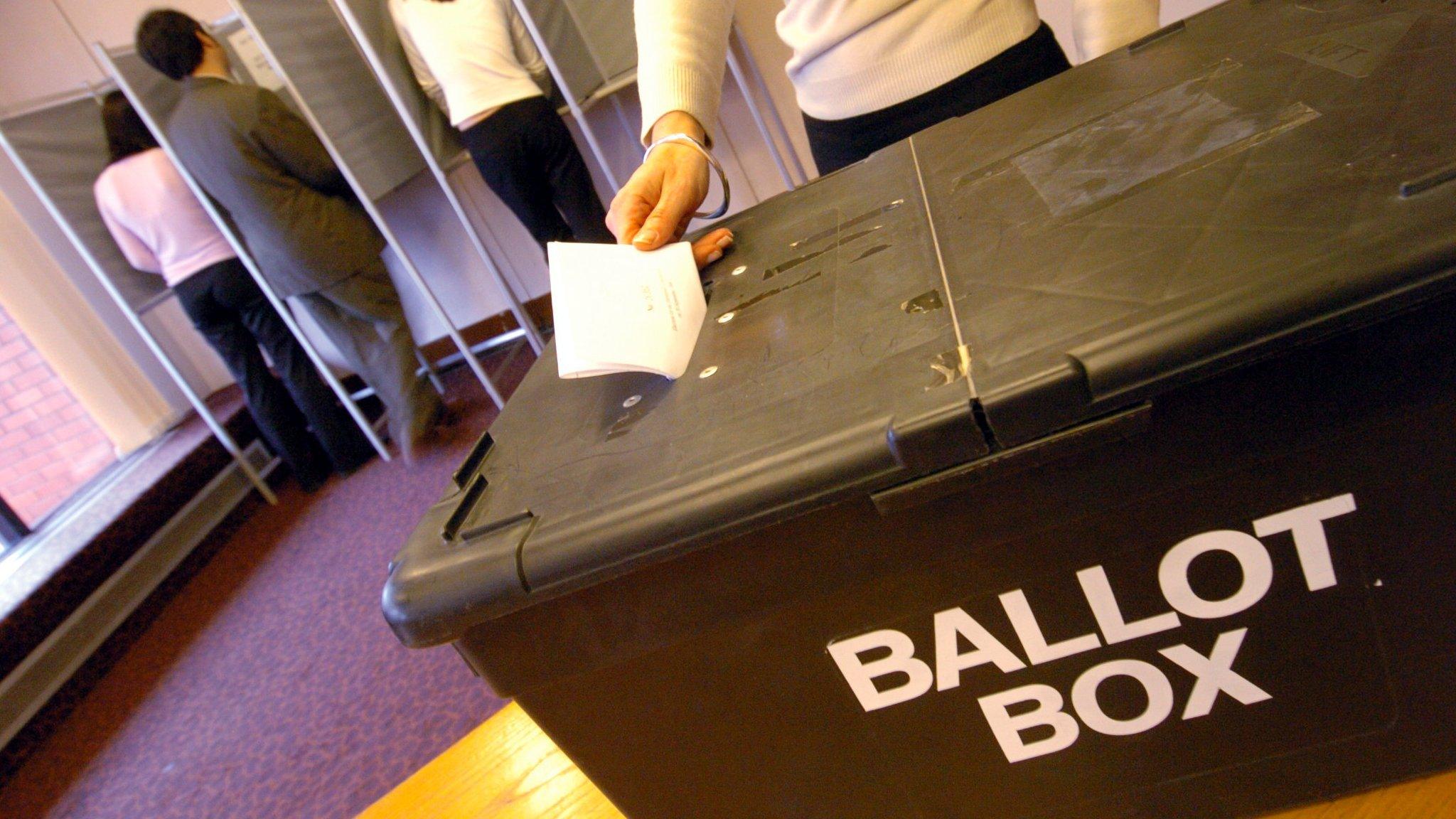Bristol mayor says underground could be a decade away
- Published
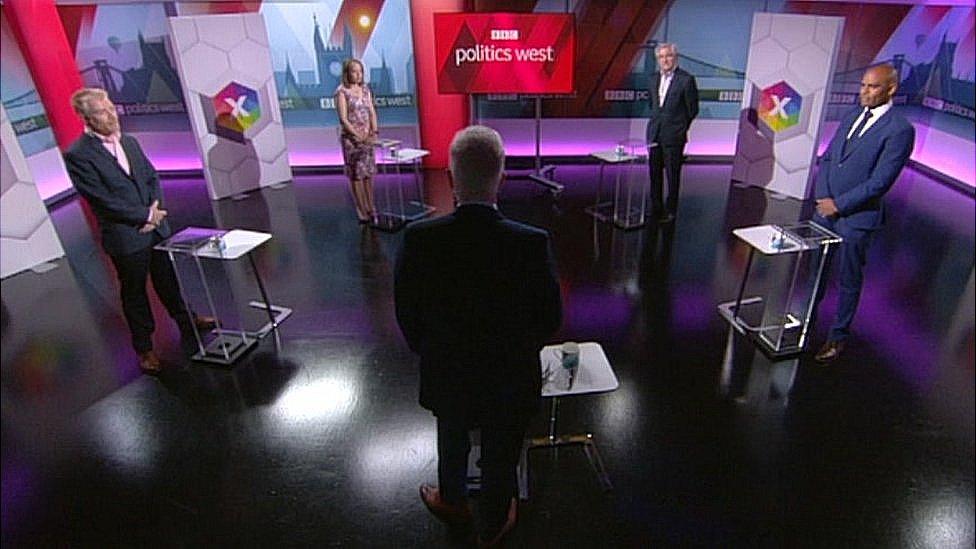
Candidates from the Conservative Party, Green Party, Labour Party and Liberal Democrats took part in the televised debate
Bristol's Labour mayor Marvin Rees has said he believes an underground for the city could be open within a decade.
The city's voters will go to the polls on 6 May to choose who takes on the third spell as its elected mayor.
Mr Rees said the scheme could cost £4bn with "national government support" during a special debate for BBC Politics West.
But Conservative Alastair Watson said the scheme was "pie in the sky".
Mr Watson added that there should be more immediate transport improvements, especially with rail and bus, and that the underground "wouldn't happen".
While Liberal Democrat Dr Caroline Gooch suggested cable cars could be an alternative to Bristol's hilly streets.
Sandy Hore-Ruthven of the Green Party suggested Mr Rees had not made improvements quickly enough and that he would introduce half-price fares for under 21s and introduce measures to reduce car journeys in the city.
The candidates were taking part in a televised debate, which covered housing, transport and whether the post of elected mayor should exist at all.
Five other candidates from the Trade Unionist and Socialist Coalition, Reform UK, Rights for Nature Campaign, and two independent candidates are also campaigning for the job to run Bristol City Council.
Dr Gooch suggested the role of mayor was not democratic and should be abolished.
"The mayor can overrule the majority council decisions, he overruled the Bristol Arena and Bristol Temple Meads and he's not listening to the people of Bristol over his proposed western harbour development," she said.
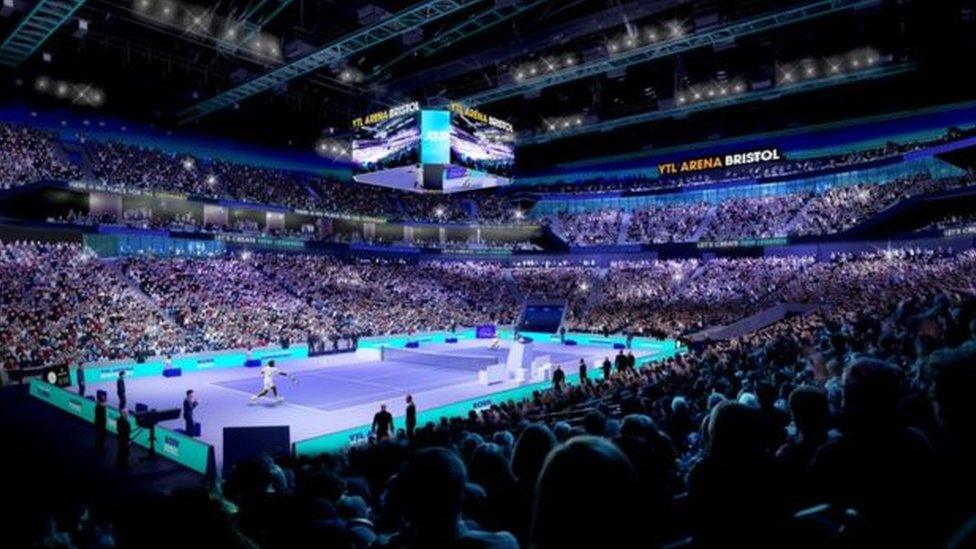
Mr Rees defended moving the site of the Bristol arena, which was granted planning permission in 2020, to Filton
Mr Watson said that he thought the role had "failed for the city" and that the city had "too many mayors" now.
"We've wasted £50m on a Bristol energy company because he couldn't take that decision, whereas if that had been a leader of the council, we would have saved an awful lot more money."
Mr Rees said "visibility was really important" and the "real decision" was whether the political leader of the city should be elected by the public, or by members of the council.
He also defended the decision to move the planned Bristol Arena project to Filton, saying it would have been "financially disastrous for the city" to build it at Temple Meads.
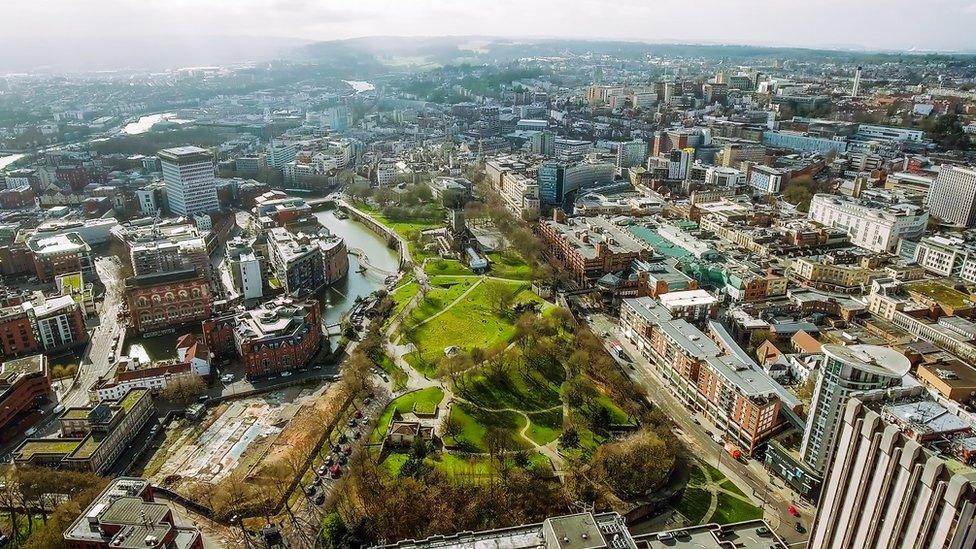
Bristol's transport issues were also discussed during the exchanges
Mr Hore-Ruthven said the public were telling him they just wanted a mayor that is "going to get things done".
"I would have a cross-party cabinet, I would abide by any full council votes on the big issues, and I think that way we can tweak the city system and make it work," he said.
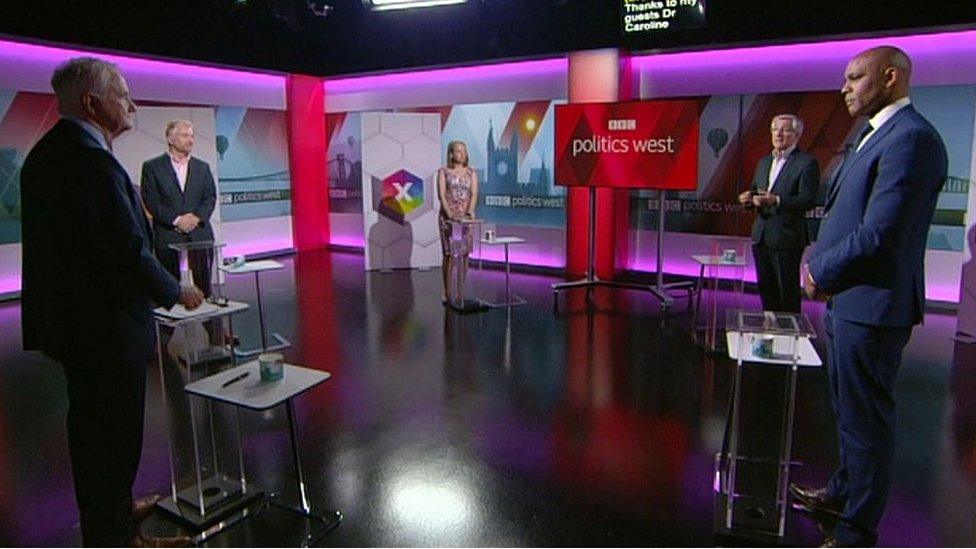
The candidates covered housing, transport, and the role of mayor during the debate
Each of the candidates also set out their plans for how they hoped to deliver more affordable homes for Bristol.
Mr Rees admitted that the council had been unable to hit his target of 800 affordable homes each year, but claimed they had trebled the amount of affordable homes built during that time.
Other candidates told the programme about their main policies:
Tom Baldwin is a candidate from the Trade Unionist and Socialist Coalition. He said he would "stop and reverse the cuts to jobs and services on the council".
Independent Sean Donnelly said he would "make Bristol better in all ways" and build new council homes.
John Langley, an independent, said his policy was about "cleaning up the city", and particularly wanted to target non-peaceful protests.
Oska Shaw, a candidate from the Rights for Nature Campaign, he believed trees across Bristol had the "right to exist" and that the city was losing its tree cover.
Robert Clarke from Reform UK said if he were elected there would be no more lockdowns and "freedom would naturally return".

Follow BBC West on Facebook, external, Twitter, external and Instagram, external. Send your story ideas to: bristol@bbc.co.uk , external
Related topics
- Published14 April 2021
